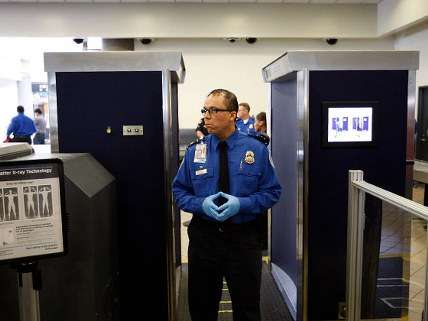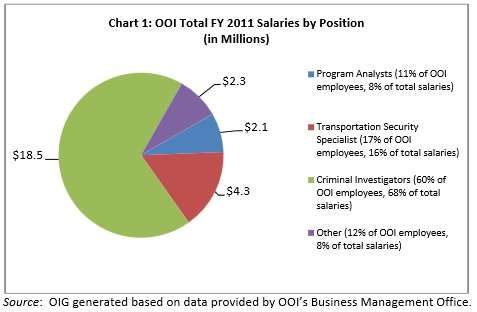TSA Uses Expensive Criminal Investigators To Fail To Investigate Security Vulnerabilities, Says Report

Not that the TSA needs more trouble, but then again, the rest of us don't need more TSA. And we really don't need overpaid, poorly deployed Transportation Security Administration criminal investigators sent hither and yon on expensive, poorly conceived tasks that pretty much anybody could have done at lower cost. And we don't expect the agency tasked with providing transportation security to lack any sort of game plan for determining if it's doing its job. But that's exactly what's been happening, according to a report from the DHS Office of Inspector General.
The report (PDF) found that the Office of Inspections (OOI), which is largely staffed by well-paid criminal investigators and tasked with detecting vulnerabilities in TSA security systems and conduct internal inspections, doesn't operate efficiently. Specifically, the OOI uses criminal investigators receiving "premium pay" to perform duties that could have been performed by other employees at lower cost. More troubling for an office detailed to determine if the Transportation Security Administration is actually providing some sort of transportation security, "Quality controls were not sufficient to ensure that inspections, internal reviews, and covert testing complied with accepted standards."
OOI did not effectively plan its work, did not adequately measure its performance, and did not have quality control procedures to ensure that all divisions complied with standards that the office had committed to using in its work. OOI also could not require other TSA offices to respond to its recommendations. In addition, TSA did not hold OOI accountable for developing and implementing effective quality controls over its resources, staffing, and operations. As a result of the issues that we identified with OOI's quality controls over its work products, TSA management may not be able to rely on this work, and the office may not have accomplished its mission to identify and address transportation security vulnerabilities.

Top-heavy staffing in terms of criminal investigators is projected to cost an unnecessary $17.5 million in Law Enforcement Availability Pay (which is 25 percent higher than base pay) over five years, the report adds. That doesn't take into account additional costs from the ability to retire with full benefits at age 50 after 20 years of service, and faster accruing pensions. In fact, criminal investigator salaries account for 68 percent of OOI salary costs, even though the law enforcement-rated staffers are often used for work that anybody could do.
And then there's that additional problem of not actually accomplishing its mission, despite those costs. The report warns that, without quality control, planning or adequate standards, "management may not be able to rely on OOI's work." And since that work consists of trying to ensure that the TSA is actually providing security, the rest of us can't really rely on the TSA as a whole.
Not that we ever thought we could.


Show Comments (6)